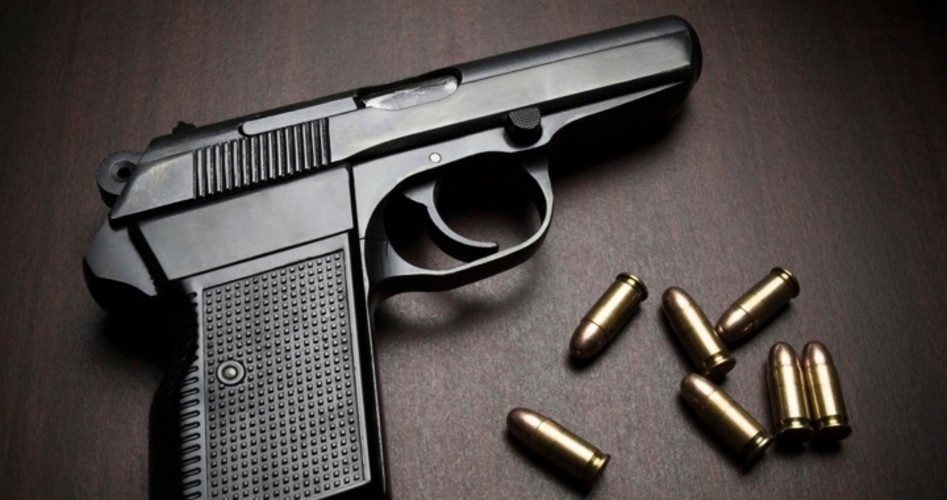
Branded as the “violence tax,” Cook County officials in Illinois are proposing a tax increase on guns and ammo, with the intent to curb violent crime and help close its expansive budget gap. Homicides in Chicago have boosted a staggering 25 percent this year, according to MyFoxChicago.com, and some officials are using the tragedy as a pretense to dilute the number of guns and ammunition in circulation.
Cook County Board President Toni Preckwinkle proposed the tax, claiming it would help fill a towering $115 million budget hole next year while stemming Chicago’s rapidly increasing gun violence in light of the summer’s climbing murder rate. “It’s a problem for us in our criminal justice system and it’s a problem for us in our health care system, and I make no apologies for the proposal,” Preckwinkle asserted, adding that shooting victims cost taxpayers an average of $52,000 because the overwhelming majority of them do not carry health insurance.
Kurt Summers, Preckwinkle’s chief of staff, explained how beyond the tragic human toll, gun violence plagues government coffers in numerous ways:
It impacts law enforcement, both at the city and the county [levels]. It impacts the courtrooms, the public defender and state’s attorney that are in there, the judges that are in there, the clerk of the court that has to sit there, the sheriff’s deputies that are in that courtroom and it impacts the jail — the folks that are sitting there at $143 a day,” he said, referring to the daily cost of keeping an inmate behind bars.
Just how much Preckwinkle would tax guns and ammo is uncertain, but gun owners would largely be affected if dealers were responsible for paying the tax to the county’s revenue department. In 2007, then-Cook County Commissioner Robert Maldonado sought to institute a soaring 10-cents-a-bullet tax — even previously proposing a 50-cent tax — before the proposition was ultimately smothered.
Gun rights advocates have railed against Preckwinkle’s proposal, affirming that “gun control” laws such as the “violence tax” will only punish responsible citizens who lawfully own firearms. NRA lobbyist Todd Vandermyde, for example, told the Chicago Sun-Times it’s “just another example of the blame game.” He added, “Chicago and Cook County has a gun violence problem, Chicago’s got a high high school drop-out rate, they’ve got a drug problem, they’ve got a gang problem, but they want to make legal gun owners, guys like me, the scapegoat.”
“[It’s] just another scheme concocted by the Chicago Machine to punish law-abiding firearm owners,” Richard Pearson, executive director of the Illinois State Rifle Association, said of the controversial tax proposal.
Beyond the freedom restraints of the tax, other critics are skeptical as to how effective it would be, referring to both the budget gap and its impact on violent crime. “If we can tax cigarettes, it seems we can tax bullets and guns,” noted Chicago resident Cathryn Taylor. “But at the same time, I get the point that if people are buying the stuff illegally, then the tax doesn’t matter because they aren’t going through legal channels anyway.”
Brandi Swafford, also a Chicago resident, said gun control laws and so-called violence taxes are largely ineffective, because criminals are bound to find guns and ammo somewhere. “You can get this from anywhere,” she said. “You can go outside the city. There’s always a way to get something illegally.”
While Preckwinkle’s new tax proposal is not “gun control” in the conventional sense, her assertion that it will help curb gun-related crime is unfounded, as countless studies debunk the myth that government regulation of firearms stems murder rates and other violent crimes. One of the most comprehensive reports on the subject was published in 2004 by the National Academy of Sciences, which issued a 328-page analysis based on 99 books, 253 journal articles, 43 government publications, and a survey of 80 different gun control laws as well as its own independent study.
The extensive report concluded that there was no link between government regulations on gun ownership and lower rates of crime, gun violence, or even accidents related to gun use. Notably, the study’s panel was created during the Clinton administration and only a single member was known to oppose gun control laws.
Moreover, a former study commissioned by the Justice Department concluded that background checks at gun shows would do little to reduce the number of criminals obtaining guns, considering criminals are not prone to frequent gun shows. Guncontrolpolicy.com reported further on the study:
The study noted the number of criminals who obtained guns from retail outlets was dwarfed by the number of those who picked up their arms through means other than legal purchases. The report was the result of interviews with more than 18,000 state and federal inmates conducted nationwide. It found that nearly 80 percent of those interviewed got their guns from friends or family members, or on the street through illegal purchases.
These findings, along with countless other studies on the issue, indicate that the “violence tax” would do little to curtail Chicago’s tumultuous rise in gun violence. Moreover, critics note that inflating taxes on residents, regardless of the medium, is not the solution to the city’s ailing budgetary woes.


